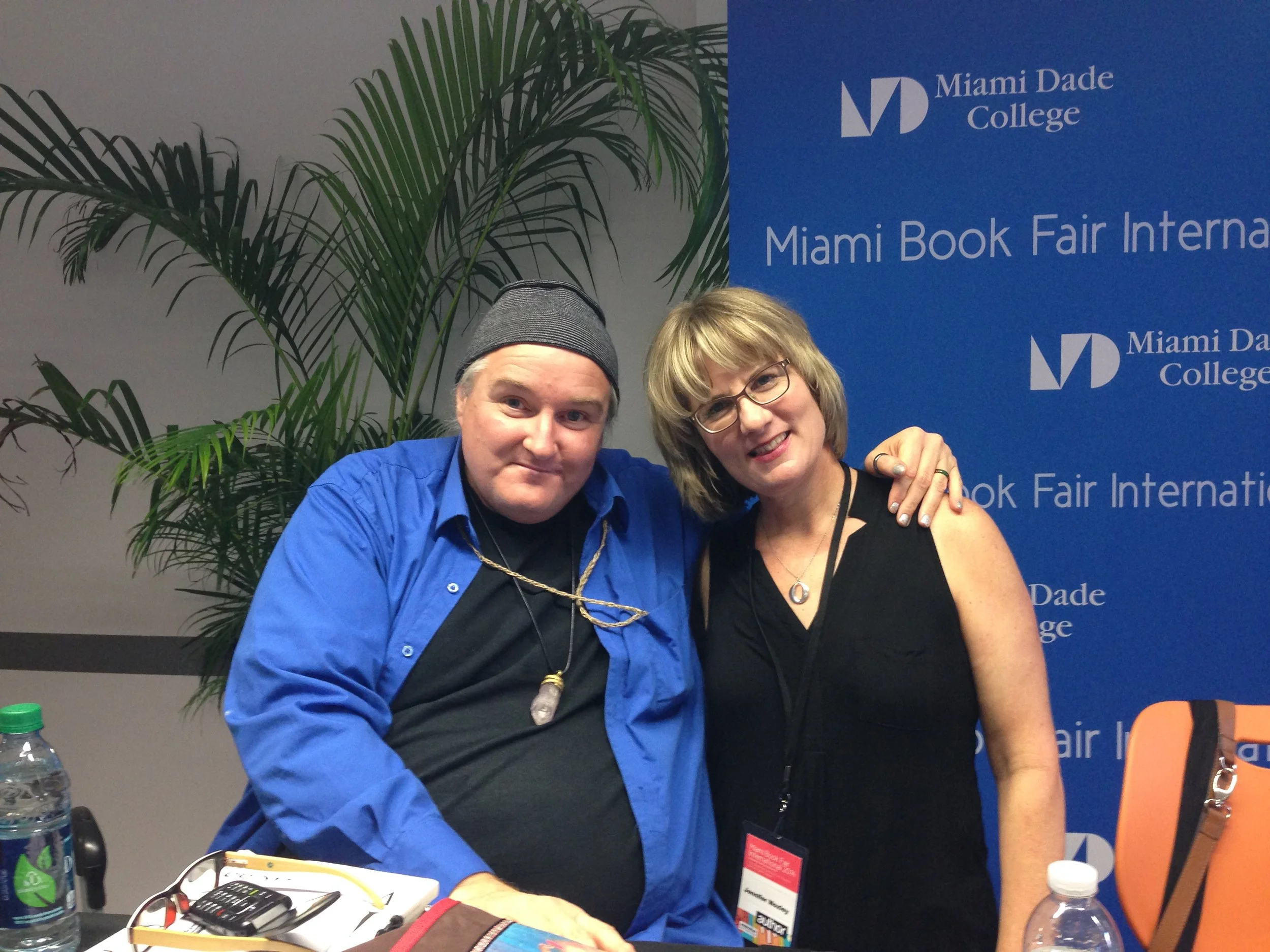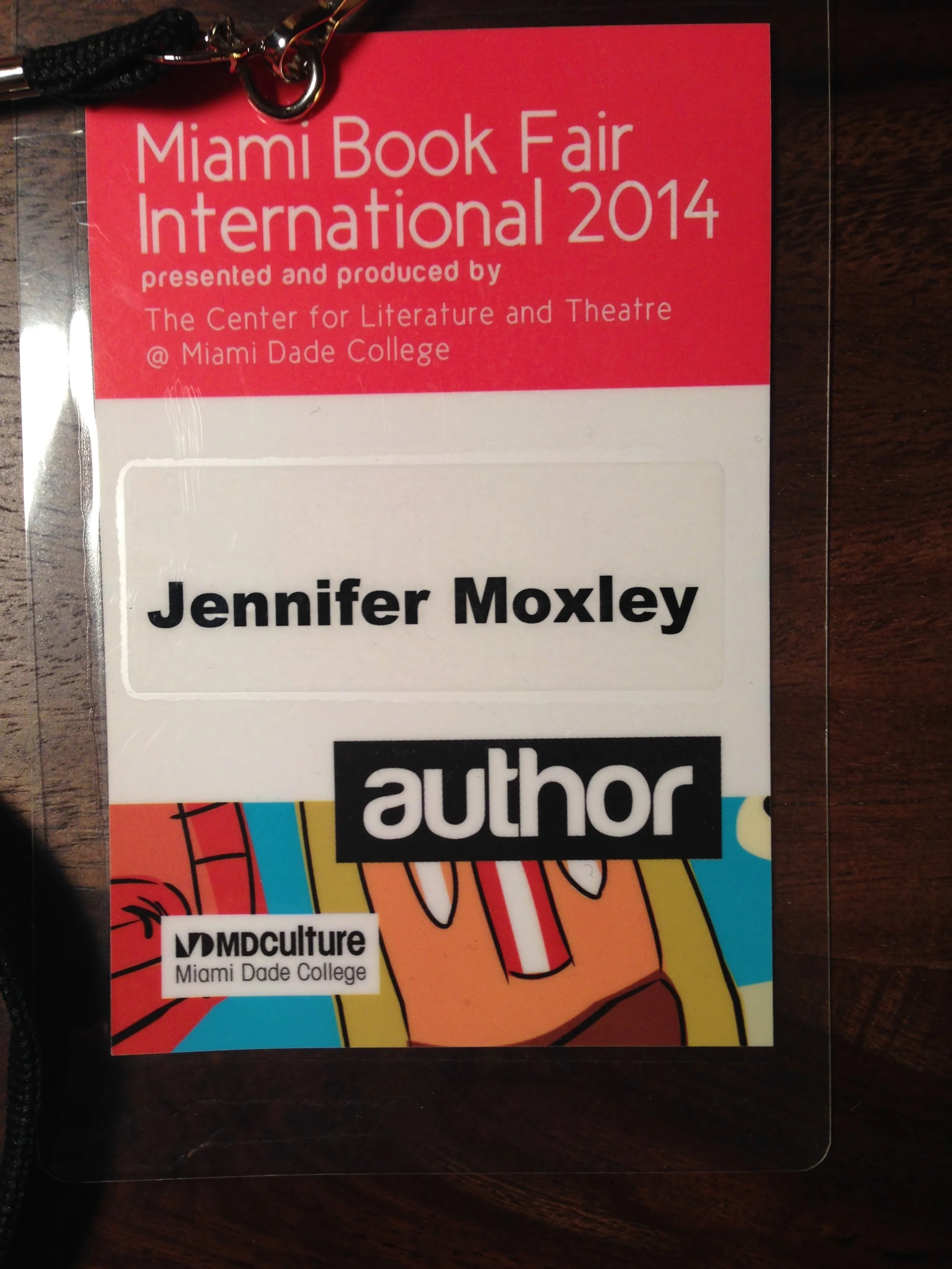Author Function
With CA Conrad
Browsing bookstalls at the Miami International Book Fair I blow the dust off a tempting copy of a Spinoza Dictionary. Too expensive. I turn to the bookseller, a wizened man with white hair jutting from the sides of his head. “You run a local shop?” “Yes.” I feel so grateful to see old books among the many stalls selling shiny new “bestseller-style” hardbacks. I exchange a few niceties with the bookseller, who is a bit standoffish until he notices the name tag hanging around my neck. “Oh, you’re an author,” he says, suddenly attentive. “Yes, I suppose I am.” As I move on to the next stall, he stops me. “Wait, just wait a minute,” he says, “I want to write down your name. Just in case.”
At the Miami International Book Fair, the “Author Function” hung awkwardly around the neck of the living poet. It swung by a cord and served as a magic key. It let her into the Author’s Lounge, where there was free coffee and vats of Cajun food, printers, posturing, none-to-subtle name tag gawking, and “who’s who” gossip. Young smiling volunteers treated anyone with an author’s name tag like royalty. After events authors were lead to outdoor tables in order to sign books for adoring fans. This part of the “author” charade deflated rather awkwardly as, following our event, the other poets and I stood ignored next to our “wares.” No one was buying, or even browsing. The well-meaning volunteer asked us to sign one book each. Just in case. The whole charade surrounding the “grandiosity of authors” just makes me embarrassed. I realize that the Miami Book Fair hopes to promote literary culture in part by treating authors as stars—but as Foucault articulated, the Author Function does not come about by an act of “spontaneous attribution”— such as hanging a tag with the word “author” around the neck of a poet.
Which brings up another question: is a poet an author? Authors have authority, but do poets? The Author Function is necessary in order to place works of literature within “juridical and institutional systems” (Foucault again). In other words: to know who to hold accountable or to accuse. Is this why I prefer some distance from the site of anyone reading my work? As if I—the flesh and blood person—fear I will be held accountable for the spectral self, the uncanny “function,” which somehow managed to write poems and then point the finger at me . “What do you mean by poet?” the tribunal of the underworld asks Orphée when he says he’s a poet, not a writer. “Écrire sans être écrivain,” he replies. “To write without being a writer.” Or, I would add, an author.

